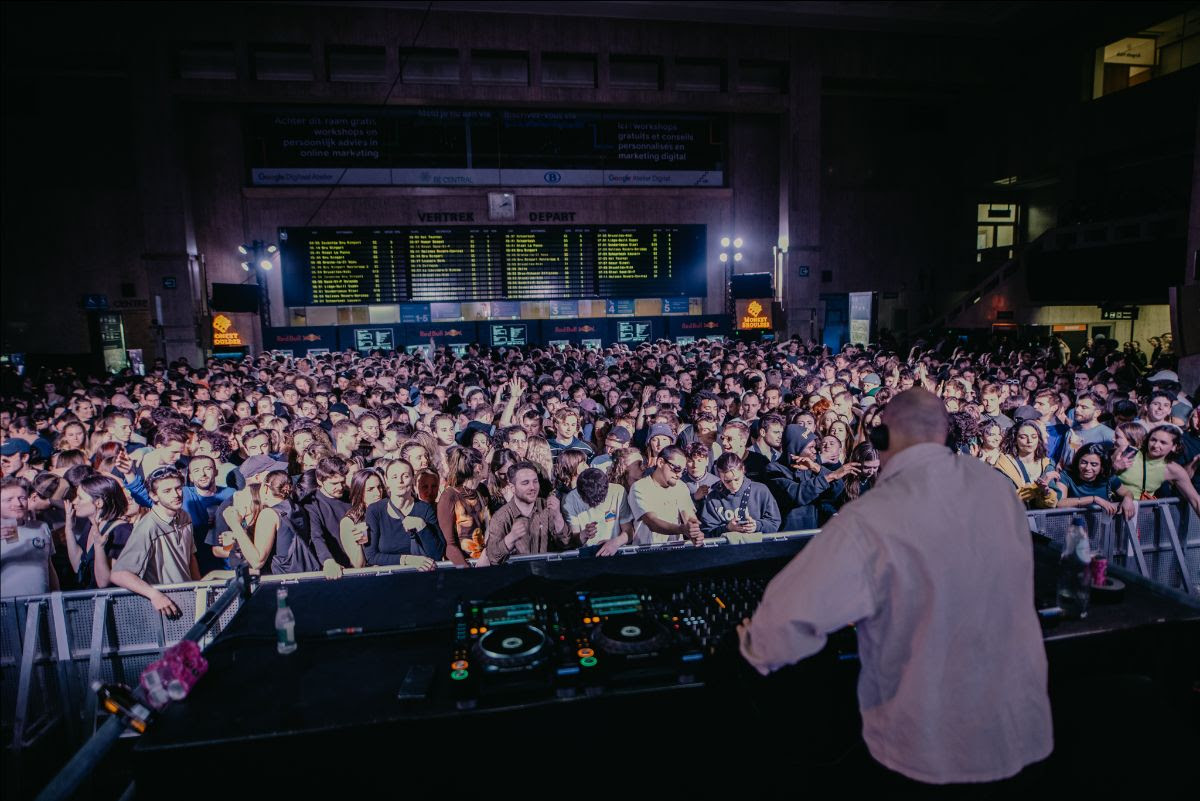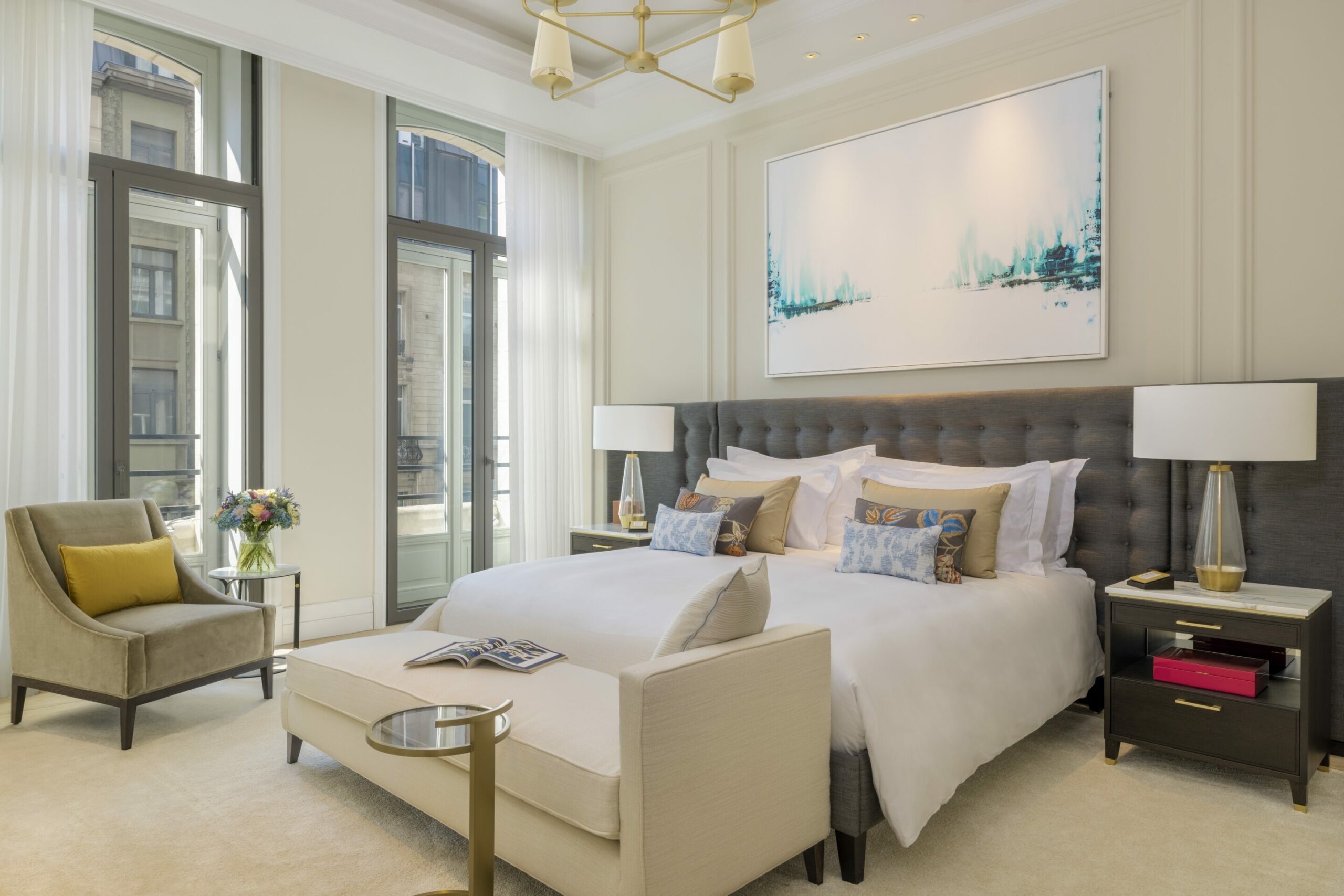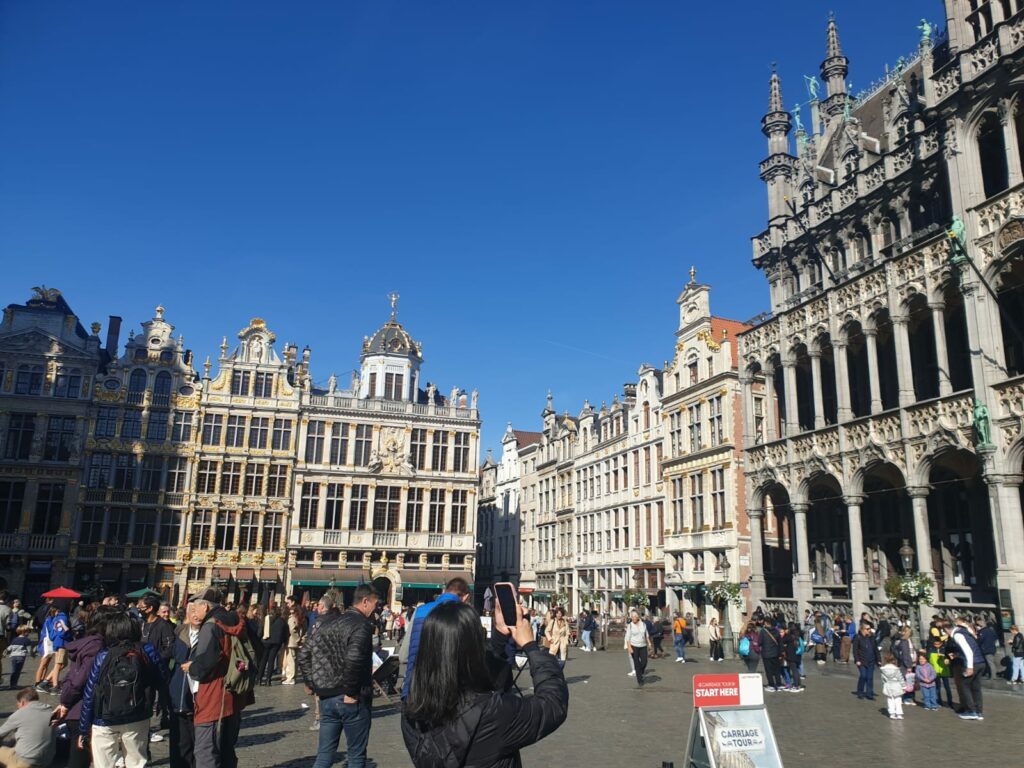An increasing number of tourists are drawn to Brussels thanks to its multicultural offering. But while things are looking positive in the sector, some limitations may be holding the city back.
Tourists long favoured the capitals of neighbouring capitals over Brussels, but new figures suggest the Belgian capital is no longer being overlooked. Brussels is more popular among foreign tourists than ever, the city's latest visitor figures show. Brussels is nearing its 2019 record with around 10 million overnight stays – almost 500,000 more than last year.
"There's clearly something going on in the Belgian capital, whether in terms of gastronomy, art or its nightlife," Patrick Bontinck, the head of Visit.brussels (the regional tourism agency) told La Libre. "We have a unique multicultural offering."

Techno festivals attract many younger tourists. Credit: Listen Festival
Tourism now accounts for around 5.5% of Brussels' GDP. The capital of Europe is particularly popular among people from southern European countries such as Italy and Spain. Looking further afield, Brazilian visitors have never been so numerous, while tourists from North America are also turning to Brussels.
For younger visitors, Brussels is known for its techno parties and vibrant festivals. Meanwhile, the Art Nouveau and Art Deco scenes draw older crowds.
The region is hoping to attract more "upmarket tourism", in part through the forthcoming openings of luxury hotels such as the Corinthia Grand Hotel Astoria and the Métropole. "There are real opportunities: someone who spends several thousand euros for a night in a suite is bound to spend more in shops and restaurants," said Bontinck.
Striking a balance
Brussels has long been a destination for business travel but the rise in tourist stays is now notable on weekends. "Before, hotels were 90% occupied during the week and only 25-30% at the weekend," Bontinck explained. "Today, we have almost equal numbers of business and leisure tourists, with an average hotel occupancy rate of 82% throughout the year."
This stability in visitor numbers is a significant benefit to the hotel and catering industry, especially for maintaining a constant body of staff. Unstable periods of visitors can make it difficult to hire long-term staff and make the profession less attractive.

Credit: Corinthia Grand Hotel Astoria Brussels
Unlike Amsterdam or Barcelona, Bontinck argues that Brussels has so far avoided overtourism. Brussels was ranked 19th when it comes to cities "overloaded by tourism" with 4.5 tourists per inhabitant. But an influx of tourists poses less of a problem than in other cities, thanks to a more even distribution across the Capital Region.
"Completely neglected just a few years ago, the European Quarter is now the second-most visited part of the capital," said Bontinck. "The Atomium and Mini-Europe [both located outside the city centre] are still the two most popular paying attractions for visitors."
Looking to the future
Bontinck noted that a relatively high availability of cheap hotels helps Brussels remain an attractive destination. But when it comes to eating out, budgets are more stretched. "Restaurants in Brussels are now almost 25% more expensive than in Paris, and that's not normal."
More worryingly, most of the establishments are not profitable. Bontinck argued that Belgium's automatic wage indexation is the main cause of this. In the past two years wages in the hospitality sector have gone up almost 15%. The cost of energy has also forced bar, restaurant and cafe owners to put up prices.
But this has not yet dampened demand, and eateries continue to be overrun. "I don't know a restaurant owner who doesn't want to take on extra staff. But the cost of a new employee is so high that few do for fear of jeopardising their business."
Related News
- Two Belgian cities in top 20 European destinations most 'overloaded' by tourists
- 'Not Venice or Dubrovnik': Belgian cities take measures against overtourism
Bontinck is also concerned about the future of business tourism. Hosting major international conferences is fundamental to the development of tourism in Brussels: a business tourist spends on average €400 per day, compared to €225 and €250 among leisure tourists.
"There's a demand for congresses on health, on crypto-currencies... But we don't have the infrastructure to host them and have to turn away conferences as a result. It's mind-boggling. A lot of people are fighting to meet this demand. We have it but we have to turn it down because we don't have the space."

